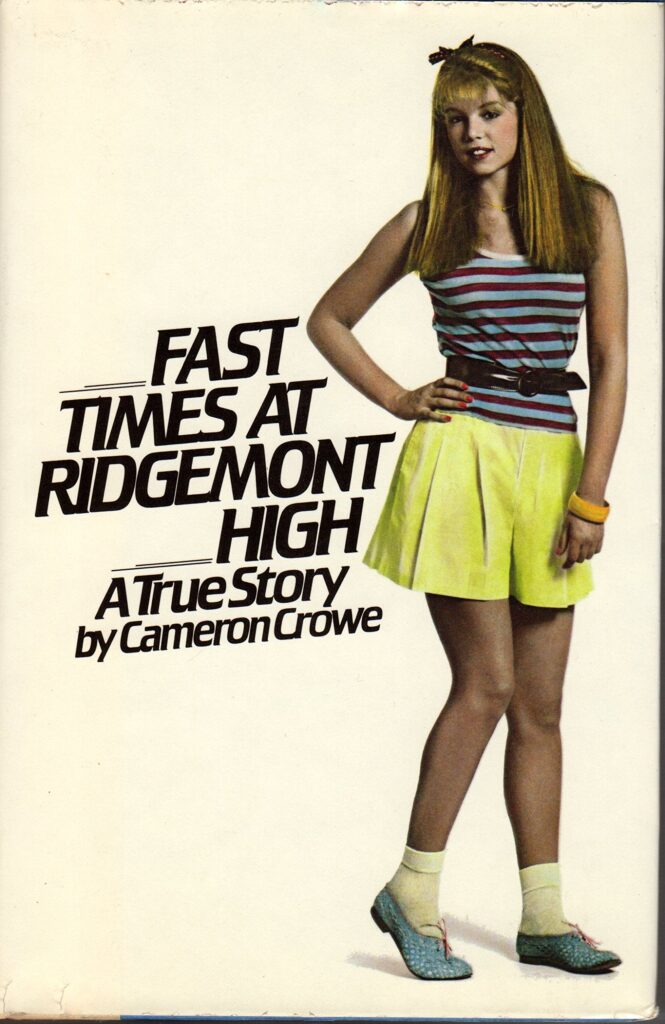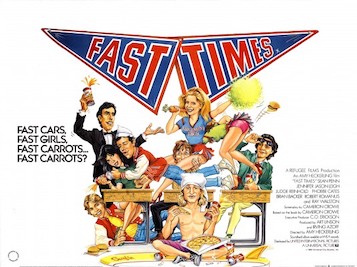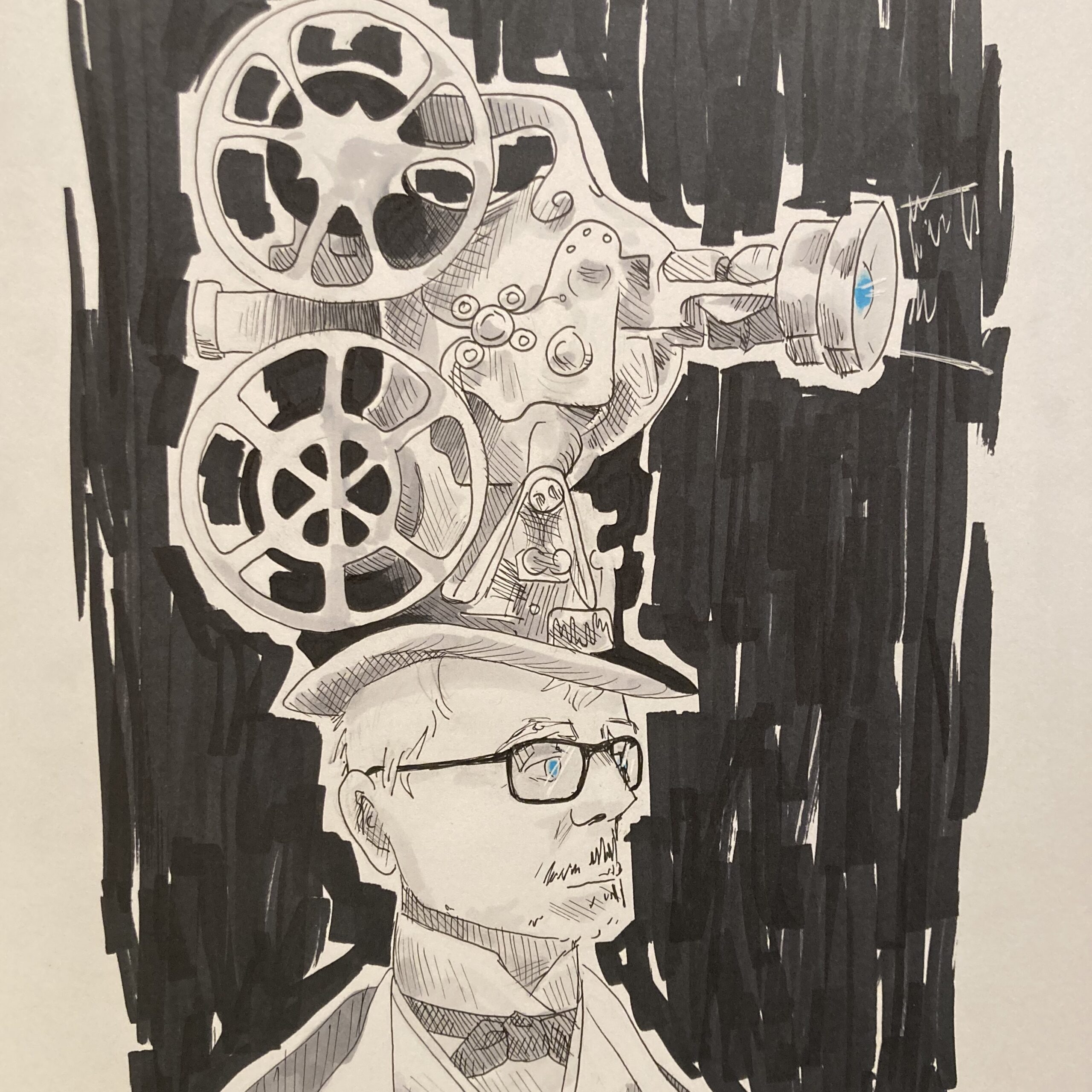“My grades aren’t that bad and you’re telling me the fun is over. Man, I’m still waiting for the fun to start!”

Iconic is an overused modifier that means standing-in for something absent. When we claim a movie is iconic, which is the case with Amy Heckerling’s 1982 fantasy Fast Times at Ridgemont High, the point is thinking about how this one movie sums up its moment, particularly as that moment faded from view.

Fast Times is about high schoolers in the 1981-1982 school year. There’s a stoner, Jeff Spicoli (Sean Penn), a worker bee, Brad Hamilton (Judge Reinhold), his 15-year-old kid sister, Stacy (Jennifer Jason Leigh), a nerd, Mark Ratner (Brian Backer), a lady’s man, Mike Damone (Robert Romanus), and a popular girl, Linda Barrett (Phoebe Cates). This sampling is what screenwriter Cameron Crowe distilled from his embedded investigation into an American High School, Claremont High in San Diego, in 1979, which was published in book form in 1981.
Crowe focused on White ethnics who are solidly middle class with stick-built homes and physical health, letting them spend considerable time planning for pleasures of the flesh. Heckerling builds on this foundation to examine the pop culture of Crowe’s story world. On the soundtrack we listen to songs by Jackson Browne, The Go-Go’s, and Donna Summer, and we visit football stadiums and a video game arcade before we log time staring inside hallway lockers or at passersby in a shopping mall’s central atrium.
Around the main action, which has a way of returning to Phoebe Cates’s topless scene when she emerges from a pool as Brad’s masturbatory fantasy, we also watch two anomalous performances. One is Ray Walston’s Mr. Hand, the anti-pot history teacher who torments Spicoli; the other is Forest Whitaker’s linebacker, Charles Jefferson. Where Mr. Hand is old, White, and conservative, Jefferson is young, Black, and unformed. Together, these performers suggest overlooked story elements that are fully ignored in this so-called iconic movie.
As in, what’s it like to be a non-White student at a predominantly White, middle-class school where the kids speak English and work in after school jobs to one day enter the service economy dominated by their parents? What’s it like to act in loco parentis for latchkey youth that collectively exhaust your middle years by ignoring the curriculum you represent?

Then there is Stacy’s journey organized around her sexual awakening. On screen, her first sexual experience plays as statutory rape when she scores with a 26-year old stereo salesman in a baseball dug-out while looking up at the graffiti meme, “Surf Nazis.” Later, when she can’t seduce Mark, the boy who loves her, she settles for sex with Mike, who impregnates her, necessitating a second act abortion.
These odd spots of unexpected interest make Fast Times at Ridgemont High a jolt of pioneering nerve. It’s memorable for its one-liners, comfort with sex and drugs, and for celebrating rock music, but it’s equally a fantasy of largely untethered children bumping into themselves on the way to the future.
That many of these same children became Reaganites is simply a part of history.
–August 31, 2019







